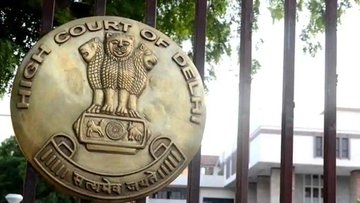
Delhi HC denies bail to school teacher accused of raping girl student
The court said that the forensic evidence strongly supports the allegations levelled against the teacher, and there is no reason to doubt the credibility of the victim’s statement.
Justice Anup Jairam Bhambani said that the forensic report revealed that the man’s DNA matches the DNA found on certain items connected to the girl’s samples collected during the investigation.
The court questioned why the DNAs will match if the interaction between the man and the girl was only that of a teacher and student.
The prosecution also presented CCTV footage showing the man and the girl entering a hotel room together. The court found no explanation as to why they would be together in a hotel room, raising further doubts.
The court said that when considering a bail application, it does not draw final conclusions. However, it stated that the serious allegations in this case require substantial answers before they can be dismissed.
Additionally, given the social standing of the man compared to the girl and the societal context, the court expressed concerns that the man might influence witnesses, or attempt to prejudice the trial if granted bail.
As per the prosecution, the man and the girl were known to each other, as he was her teacher and also provided her with tuition.
The girl had claimed that the man had repeatedly raped her, even when she was a minor. The girl’s counsel argued that the man, who is significantly older, had violated the trust placed in him as her teacher.
The defence claimed that the sexual intercourse was consensual and questioned the credibility of the girl’s version of events.
The man’s lawyer contended that he had no prior criminal record and has been in custody since June 2022, suggesting that there is no need for further detention.
The court dismissed the bail application, stating that due to the teacher-student relationship, if the alleged offences are proven during trial, they would be considered even more severe under the relevant sections of the Indian Penal Code and the Protection of Children from Sexual Offenses (POCSO) Act.
